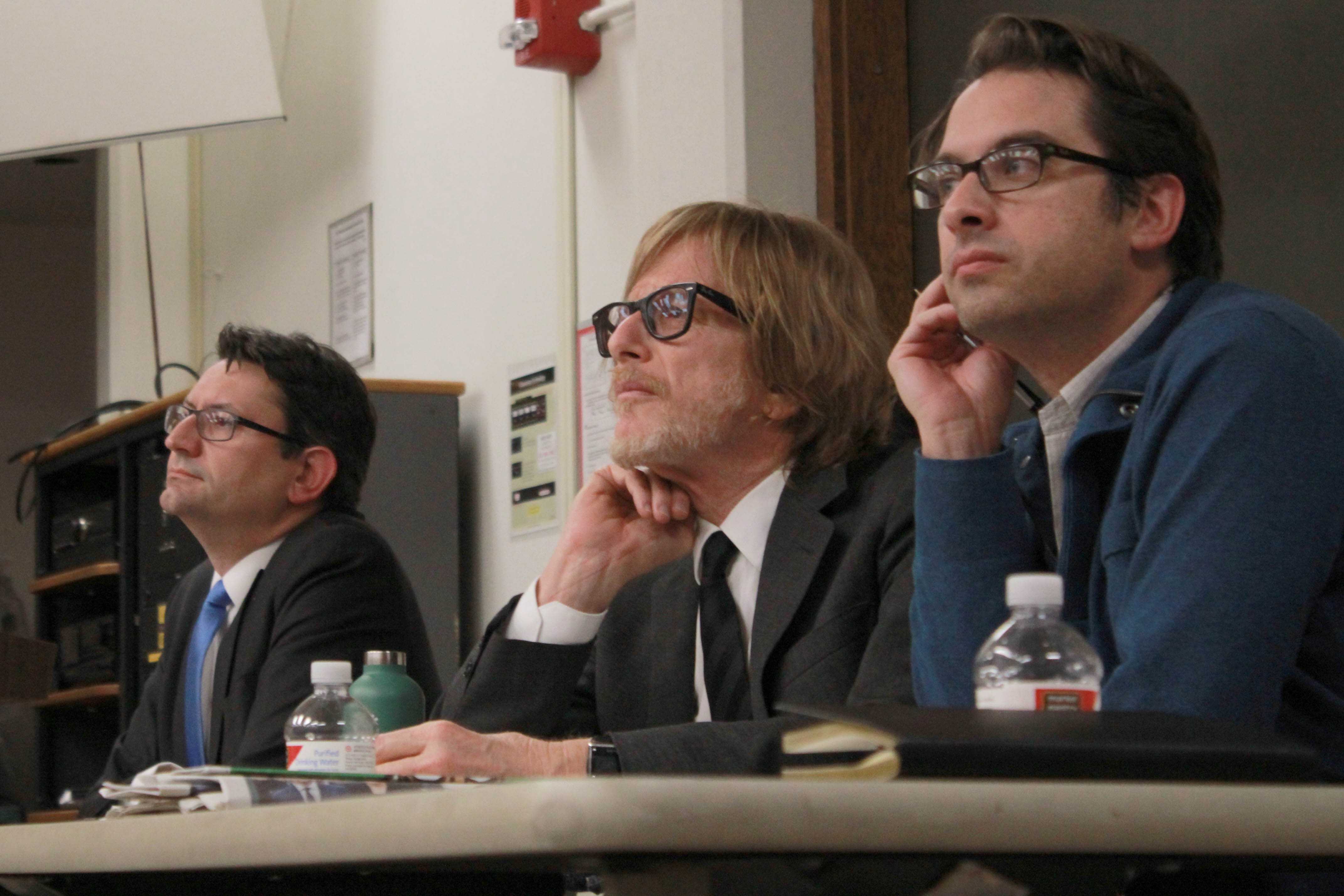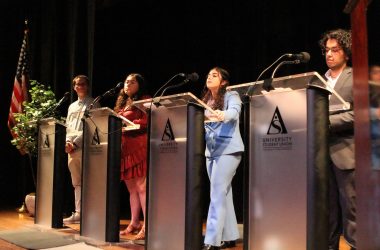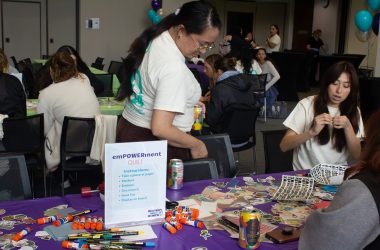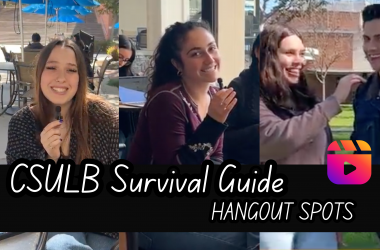Two gunmen burst into the offices of French satirical magazine Charlie Hebdo. They targeted journalists and cartoonists who had published material that the assailants felt offended the Muslim prophet Mohammed.
“France, its values, its citizens were attacked,” Axel Cruau, the consul general of France in Los Angeles, said, addressing a panel discussion at California State University, Long Beach on Wednesday evening. “Journalists were murdered because they believed in freedom of speech.”
Twelve people were killed by the time the murder spree came to an end. In photos published by France’s Le Monde newspaper, which depicted the aftermath of the attack, there are pools of blood beneath cartoons pinned to the wall as if the cartoons themselves had been shot.
The French and History Departments organized the panel in the Multi Media building to discuss the recent attacks. The panel drew an audience of approximately 150 people.
French journalist Guillaume Serina, UCLA Professor of French and Francophone studies Lia Brozgal, CSULB history professor David Shafer and Yousef Baker of the CSULB international studies program also joined Cruau in speaking at the panel.
In the opening remarks, CSULB President Jane Close Conoley expressed how freedom of speech was relevant to the university setting
“At the heart of what we do is to speak, to express, to rebuke,” Conoley said.
The goal of the panel was to discuss the importance of freedom of speech as well as to examine the cultural differences that came to a head that January morning, Shafer said.
“France has a long tradition of satire,” Sarina said.
To frame the attacks for Americans, Sarina asked the audience to imagine that Steven Colbert and Jon Stewart had been killed.
“That’s the type of response we had,” Sarina said.
Baker urged the audience to distinguish between bigotry and satire, which he said was “the ridicule of those in power.
“Bigotry is making fun of a group that lacks power in a society,” Baker said.
Brozgal said that another major difference between the United States and France was the “French philosophy” towards race.
“[It] is color-blind,” Brozgal said. “It is not even seen. Races don’t exist.”
An example is the refusal to accommodate Muslim students in France who request a Halal meal from the school cafeteria, Brozgal said.
Answering a question from a student, Baker said that questioning the social structures and policies that produce criminals is more important than asking how criminals are made.
“It’s much more offending to the prophet [Mohammed] that people were killed in his name,” Heba Al-Shoubaki, an exercise science major said when called on by thee panel. “A cartoon should not raise this level of violence. Nothing that can be said or done will affect the image of the prophet in our eyes.”
To end his presentation, Shafer presented a personal anecdote. He told the audience that he was in Paris having dinner with his daughter at an Israeli restaurant when François Hollande of the Socialist Party won the French presidential elections in 2012.
When the news was announced, two men of African descent, one who was Muslim, burst into the restaurant with guitars. They proceeded to play the French national anthem as the diners joined them in song and laughter.




